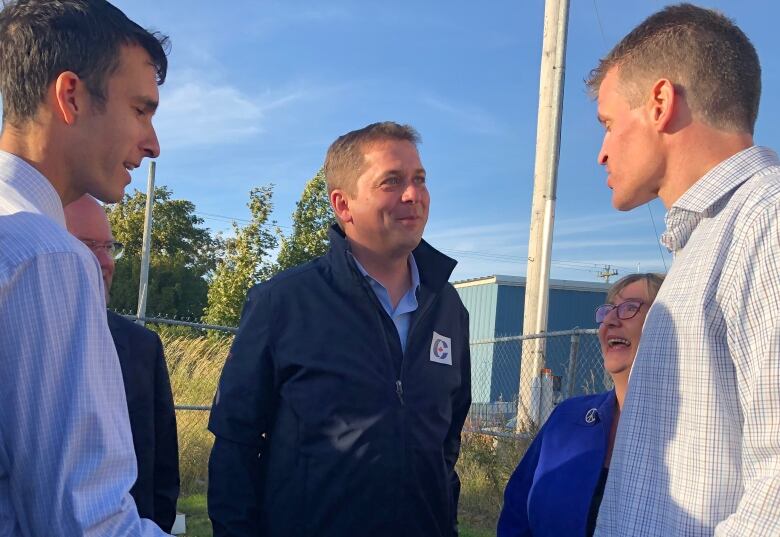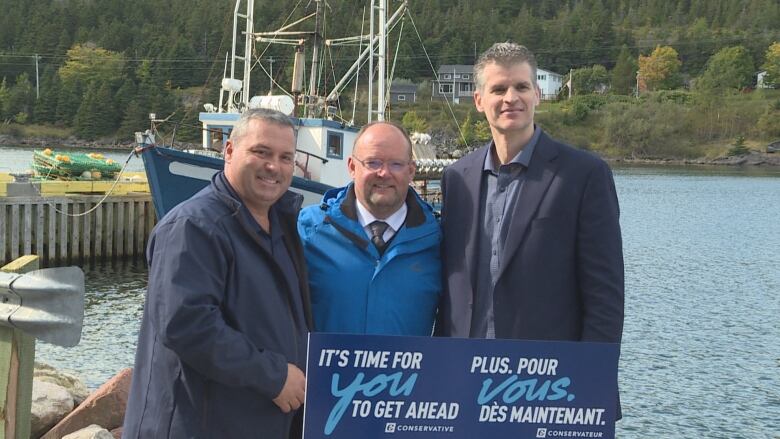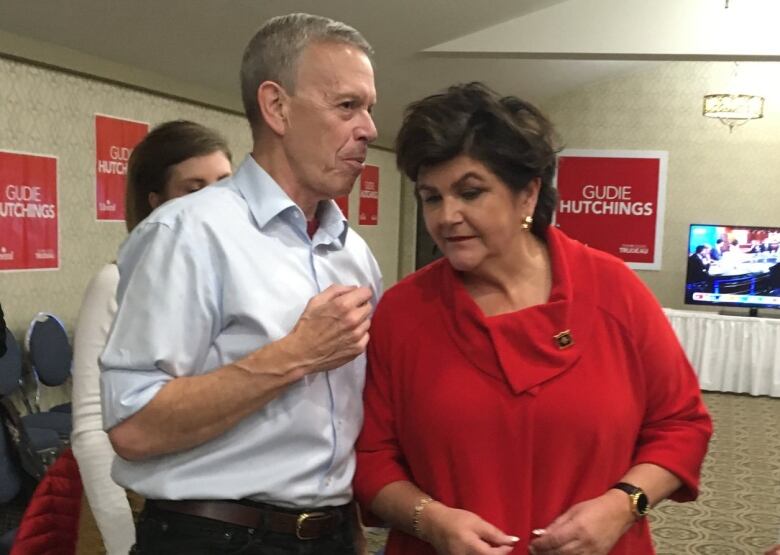Still scorched, still salted: Why the Conservatives still have a hell of a job to do in N.L.
The blue vote increased sharply in last month's election, but not enough to turn a seat

On a sunny Sunday afternoon in October, three politicians got together on the wharf in Holyrood, and asked the media to come along. What happened next wasn't a disaster, but it was problematic, and it said something about some of the problems the Conservatives had in the last election.
The three politicians were the Conservative candidates running in the most easterly ridings in Newfoundland and Labrador. Their message: they've heard from local fishermen about how the governing Liberals have run the ship, and they're taking that message to Ottawa.
What took a bit of the edge off was knowing that the message word for word was being delivered simultaneously that day in Nova Scotia, New Brunswick and Prince Edward Island, not to mention British Columbia. Yep, people in the fishing industry were all delivering exactly the same message to their local Conservative candidates.
That one-size-fits-all messaging seemed a bit ham-fisted, but an extra level of complication came in Holyrood, where Matthew Chapman who was running in the largely rural riding of Avalon was pretty much unable to answer every single question put in front of him. He emphasized (if not pleaded) to reporters that he was a teacher, and that the fishery was not his area of expertise.
The fisheries announcement was one of the marquee events for the Conservative campaign in N.L., which started with low expectations and wound up with no seats and those results triggered a nasty bit of political heartburn after election day, when a surreal revolt happened on social media. Some Albertans were disgusted that Newfoundland and Labrador elected Liberals, while that province successfully shut out Team Trudeau.

It may have seemed shocking from a faraway perspective that the Conservatives did not win seats, but on the ground, there was no surprise at all.
And yet, the Conservatives did better than many expected. To me, they proved that they're on a build-back, and that process is far from over.
The Liberal vote sank, without much competition
It's an understatement to say that the Liberals did not have much competition in several of Newfoundland and Labrador's seven ridings. The other parties did find candidates but did not stage full campaigns.
After the ballot boxes were pulled away, though, the apparent invulnerability of the Liberals in rural ridings took quite the knock.
Let's take the example of the riding of Long Range Mountains, where incumbent Gudie Hutchings took a whopping 75 per cent of the vote in 2015. This time, her count was down to 47 per cent. The Tory vote doubled, which is particularly impressive as the Conservative candidate, Josh Eisses, doesn't even live in Newfoundland and Labrador.

Parachute candidates, as they're often called, are generally seen as a sign of a party's struggle if not desperation to even be on the ballot. Soa result like that stands out, and makes you wonder what might have happened if the Conservatives had been running a star local candidate.
There were similar results. In St. John's East, Joedy Wall practically tripled the blue vote from 2015.
Those kinds of gains stand out. "The Conservatives are back," one of my colleagues said at the next morning's story meeting.
Well not quite. Joedy Wall did make a gain, but still placed a distant third, and while the Conservative vote was on the whole way up from 2015, it really felt more like a return to things were in 2011.
We racked up the lowest turnout in Canada
Another key ingredient: many of the voters just didn't turn up at all. At just over 58 per cent, Newfoundland and Labrador's turnout not only dropped from last time, but had the dubious distinction of being the lowest in the country.
On the election night broadcast on CBC, David Cochrane noted that Danny Williams had salted and scorched the earth in 2008 with his ABC Anything But Conservative campaign against Stephen Harper.
More than a decade later, the earth for the Conservatives here is still scorched, still salted less so, but it's still an uncomfortable place for many would-be candidates, not to mention would-be organizers, donors and, yep, voters.
In the inevitable hand-wringing after the election, Leader Andrew Scheer is coming under scrutiny not to mention some criticism from Tory heavyweight Peter MacKay.
"To use a good Canadian analogy, it was like having a breakaway on an open net and missing the net," MacKay said Wednesday at a public appearance in Wednesday. (Hours later, perhaps after realizing that things like that get reported, MacKay went out of his way to say he still supports Andrew Scheer. There. Fixed it!)
Conservative candidates have prevailed many times in Newfoundland and Labrador ridings albeit in the days of the Progressive Conservatives, the party that MacKay (who seems to be a target of affection of some Tory dreamers) had led right before the merger with the Canadian Alliance.
That marriage didn't sit well with many East Coast Tories when it happened, 16 years ago. I'm not sure if the comfort level has increased that much.
The latest federal vote shows the Conservatives have made undeniably healthy gains in Newfoundland and Labrador, but still have quite the job ahead of them.












_(720p).jpg)


 OFFICIAL HD MUSIC VIDEO.jpg)
.jpg)



























































































